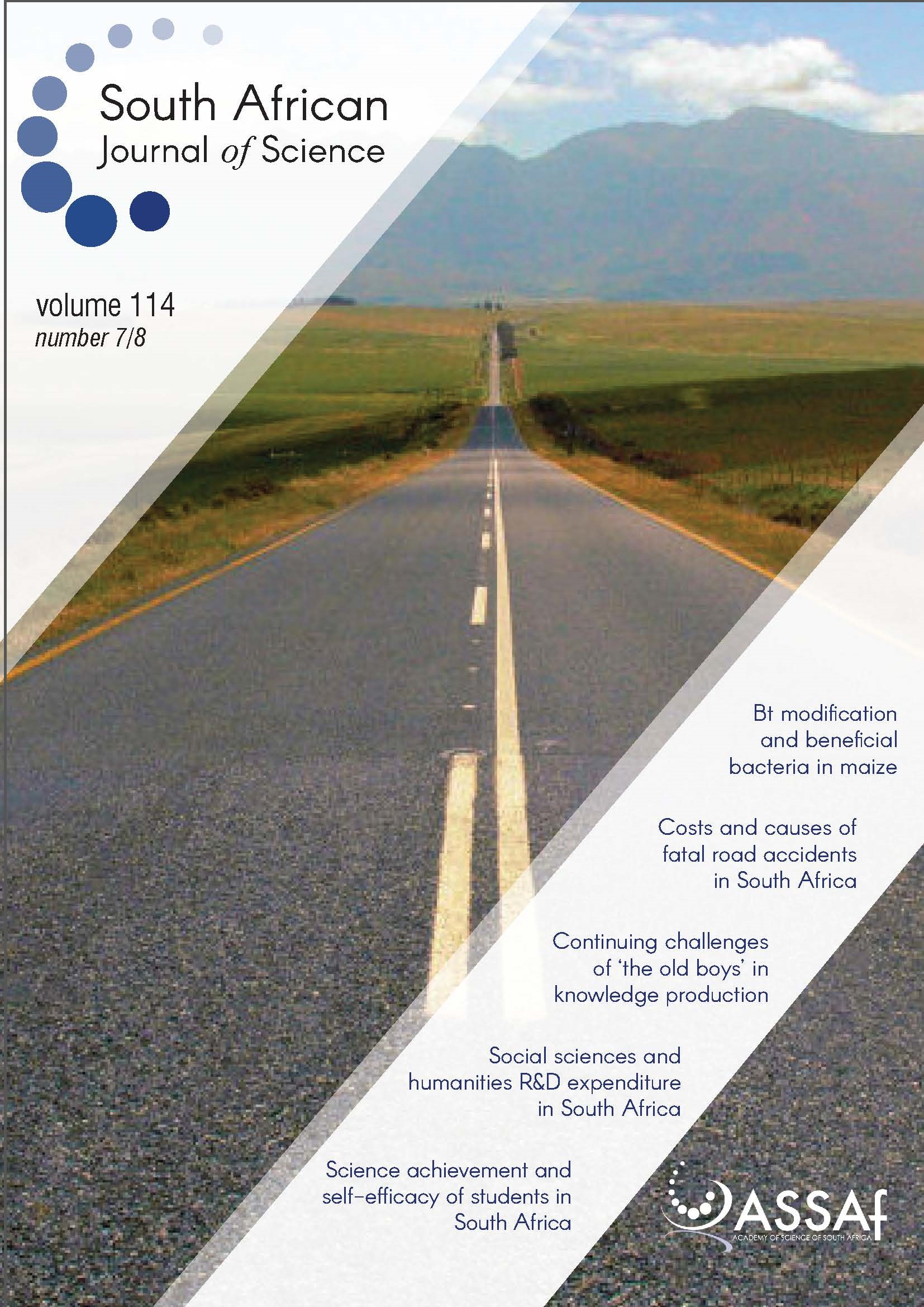Metafrontier analysis of commercial and smallholder tomato production: A South African case
DOI:
https://doi.org/10.17159/sajs.2018/20170258Keywords:
technical efficiency, smallholder farm support, production management, agricultural support programmes, resource use efficiencyAbstract
South African agriculture is a dualist agricultural system with well-developed commercial farmers and resource-poor smallholder farmers. In an effort to address the dualist nature of agriculture, the South African government has developed a strategic plan to assist smallholder farmers in entering commercial markets. The strategic plan aims to advance subsistence and smallholder farmers into commercial production through improved resource management for sustainable food security and smallholder livelihood. However, the productivity of smallholder farmers continues to be very low compared with that of commercial farmers. Our aim was to compare tomato roductivity for commercial and smallholder tomato farmers in the Nkomazi area (Mpumalanga Province) using a metafrontier analysis. We used an output-oriented data envelopment analysis metafrontier approach and the Tobit model to investigate smallholder and commercial farmers’ technical efficiencies and related factors
which affect tomato production. Results indicate that smallholder farmers have high levels of technical efficiency compared to the group frontier (0.74), but they are less technically efficient compared to the metafrontier (0.51). The group efficiencies of the smallholder farmers also showed a large variation ranging from 3% to 100%, while commercial farmers have high levels of efficiency compared to both the group frontier (0.89) and the metafrontier (0.88). Results from the Tobit regression indicate that farmers’ managerial decisions are an important determinant of their technical efficiency. We conclude that smallholder farmers first need to increase their level of technical efficiency relative to their peers before aiming to compete with commercial farmers.
Significance:
• Smallholder farmers should first improve their resource use efficiency compared to their fellow smallholder farmers before they consider comparing themselves against the commercial farmers.
Published
Issue
Section
License

All articles are published under a Creative Commons Attribution 4.0 International Licence
Copyright is retained by the authors. Readers are welcome to reproduce, share and adapt the content without permission provided the source is attributed.
Disclaimer: The publisher and editors accept no responsibility for statements made by the authors
How to Cite
- Abstract 982
- PDF 1293
- XML 290
- EPUB 244












.png)